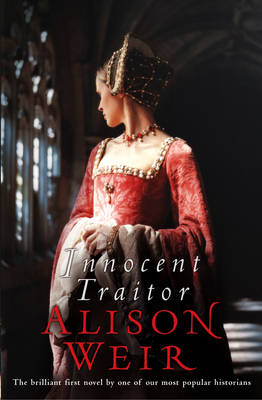Reviewed by gmcgregor on
Weir tells Jane's story from several perspectives: her mother's, her cousins', her governess', and of course, her own, throughout her 19 year life. Weir depicts Jane's parents, Henry and Frances (herself the niece of King Henry VIII), as grasping social climbers deeply disappointed in Jane's gender. The couple are Protestants who raise their daughter (and later, her younger sisters) to follow in their religious footsteps. They are harsh parents, even by the standards of their time, but Jane herself grows into a quiet, obedient, and devout teenager (she is given a top-quality education and has the love of a devoted caretaker, Mrs. Ellen, which certainly helps). While it is hoped that she'll be considered a suitable bride for her cousin Edward VI, she is eventually married off to Guildford Dudley to form a political alliance. When the king finally succumbs to tuberculosis, her family, as well as her husband's and their allies, proclaim her queen on the grounds that Edward's sisters are bastards and therefore ineligible to inherit...and also to ensure that a Protestant monarch takes the throne rather than the rabidly Catholic Mary. When Mary musters troops, Jane is rapidly deposed and imprisoned. While Mary is initially inclined to show mercy, she eventually realizes that Jane makes too attractive a figurehead for Protestant foes and has her beheaded.
I love Alison Weir's histories...she has a light, lively touch with her subjects, creating a real sense of the person behind the recorded deeds. So I had high hopes for her fictional debut. But those hopes were disappointed. It's honestly not very good. Her characters are, for the most part, very one-dimensional: Jane and Mrs. Ellen are good, her parents and husband are bad. I found it jarringly anachronistic that Jane's wedding night rape is conceived as such by her...is "rape" even a word that would have been in common use then for someone of Jane's class? Especially to describe nonconsensual-but-within-wedlock sex (which was perfectly legal in many states in the US well into the 1900s)? Weir does not handle her multiple perspectives with particular skill and it often feels like just when you're getting into the groove of one character that it shifts to another.
Weir clearly feels a great deal of sympathy for her subject, and paints a picture of a life that seems cruelly harsh to a modern eye: abused and manipulated and finally killed. But from my own reading, it seems different more in degree than in kind for noble childhoods of the era: distant, uninvolved parents who expected their offspring to be seen and not heard and made plans for their future in order to create or cement alliances with other families. Jane's short life is certainly a tragedy and her father's continued scheming around her even after her imprisonment, without seeming consideration about putting her life in very real danger, certainly evinced an unusually high level of disregard for his child. But the book creates no real tension or interest in the interplay between characters...it's just waiting for the historical events to play out as you know they will. I think some of these issues are simply mistakes by a rookie novelist, but I can't affirmatively recommend this book.
Reading updates
- Started reading
- 4 April, 2017: Finished reading
- 4 April, 2017: Reviewed
